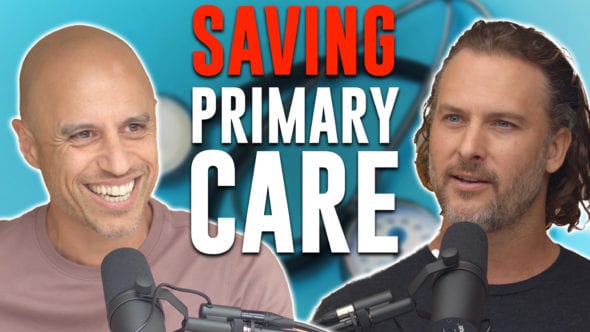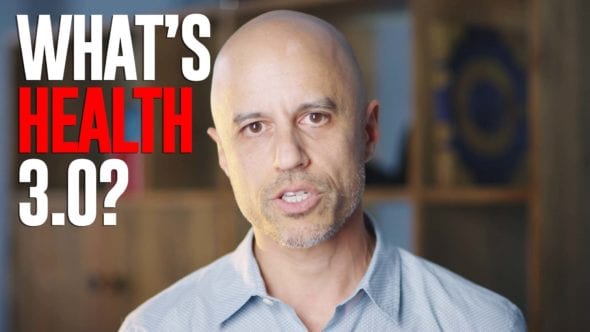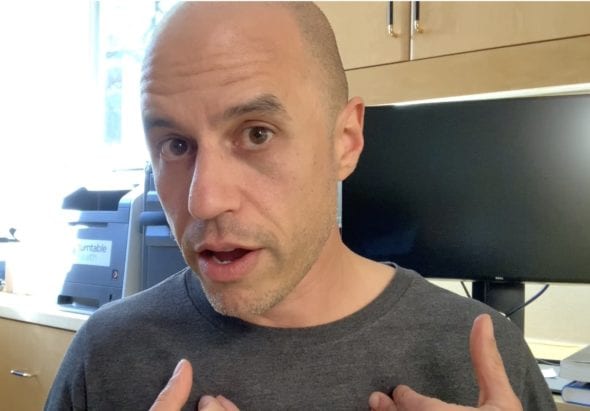Health 1.0: The Not-So-Golden Age
We stand at a crossroads in healthcare today. Behind us lies a nostalgia-tinged world of unfettered physician autonomy, sacred doctor-patient relationships, and a laser-like focus on the art and humanity of medicine. This was Health 1.0 — the world of my father, an immigrant and primary care physician with a solo practice in rural Central California.
While many still pine for the “good old days” of medicine, we easily forget that those days weren’t really all that good. With unfettered clinician autonomy and authority came sky-high costs derived from misaligned incentives. Outcomes were variable and quality inconsistent, and fragmented delivery meant an utter lack of systems thinking and population health management. Evidence-based medicine wasn’t really a thing yet; it was all about consensus and intuition and prior experience and whatever that one drug rep or med device salesperson was pushing that week when they brought lunch for the office staff.
Volume-based fee-for-service payments incentivized doing things to people, instead of for them. Escalating costs and unnecessary interventions along with straight-up corruption led to cracks in the facade of the “guild” of medicine. Rampant medical errors, massive waste, and a lack of focus on outcomes began to provoke serious backlash, especially with the advent of the internet and its democratization of information. The human relationship in 1.0 was elevated to the sacred, but the physician remained the undisputed high priest of the Church of Health Care. The rest of the “team” — including patients — were subordinate, and usually voiceless. To maintain the 1.0 status quo, our medical education system remained mired in an ancient hierarchical, tradition-bound Greek paralysis, valuing deference to authority above all else.
Health 2.0: Medicine As Machine
In response to the real and perceived failures of the fragmented medical cottage industry, a new paradigm emerged: Health 2.0 — the era of Big Medicine. Folks asked, “Why can’t healthcare behave like other industries where the rules of business and economics — carrots and sticks and metrics and mid-level managers — apply in force?” A focus on value over volume meant looking at populations and systems design, and so Big Data, randomized controlled trials, and quality improvement science became the new religion of the realm.
But somewhere in the mix of good intentions, the human heart of the thing — the piece that really matters — was lost. Large corporate groups gobbled up solo practices and hospital systems. Managed care, government regulation, evidence-based “guidelines,” HIPAA, PQRS, HCAHPS, MACRA, MIPS, Press Ganey, Lean, Six-Sigma — these ushered in the era of Medicine as Assembly Line. All of us — clinicians, patients, and administrators — became mere cogs in this glorious, insanely mundane production machine.
Instead of ceding authority to the guild of paternalistic physicians, we now cede to endless bureaucracy — the swelling ranks of the administrative technocracy, with its faceless protocols and algorithmic click-boxes codified in that glorified cash register, the electronic health record. We now treat a computer screen while our patients are reduced to 0’s and 1’s in the Medical Matrix. The doctor doesn’t hold power anymore, but neither does the rest of the healthcare team — and certainly not the patient. We are ALL commodities…raw materials in the human factory farm of Health 2.0.
And now the very calling that first drew us into medicine is itself in crisis. 60% of physicians wouldn’t recommend the career to their children, while our nurses are exhausted and our patients turn to Dr. Google and Gwyneth Paltrow in despair. Suicide is epidemic among our healers. Why? Because although many of the principles of quality, efficiency, and systems-thinking espoused by Health 2.0 are crucial to moving us forward into the 21st century, we’ve lost the heart and soul of medicine along the way — that distinctly analog human relationship that elevated medicine from career to calling.
Health 3.0: Repersonalized & Transcendent
A new paradigm is emerging at last — one that treats both Health 1.0 and 2.0 as partially true, but incomplete. A paradigm that transcends both, preserving their strengths while allowing for the emergence of something far greater: repersonalized care that honors both the unique individual and the larger whole.
Health 3.0 is about connections and the primacy of human relationships, but it’s no longer simply paternalistic (Health 1.0) or strictly commoditized and informational (Health 2.0). It’s a partnership with our patients and each other that can only emerge when clinicians are given the time, space, and tools to understand the unique hopes, dreams, and fears of the human in front of them, while also recognizing that no person exists in a vacuum — including the caregivers, who are now part of a seamless team where every member is allowed and expected to practice at the top of their license.
Actual outcomes matter in Health 3.0, not click-box “quality measures” that don’t actually measure quality. Clinicians are given the tools and autonomy to achieve the outcomes that matter to their patients; do the right thing, and let technology work in the background to enable and empower the relationship. This allows the emergence of real value, where cost, quality, and patient experience intersect. We’re paid to create this value, not to do more tests or withhold needed care or click through checklists on a computer screen. Our administrators seek not to greedily grab more of a shrinking pie, but to grow the entire pie for everyone.
In Health 3.0 we are evidence-empowered but never evidence-enslaved. We find a nerdy kind of joy in process improvement science that allows us to better achieve the outcomes that actually matter to our patients. We hold patients accountable to take control of their health, and they hold us accountable to be their shepherds. We recognize that interiors matter as much as exteriors: the mind-body connection and the conscious experience of human beings is no longer discounted. Each member of the healthcare team supports one another while bringing their unique gifts to bear, and clinician-leaders guide our organizations with compassion and wisdom.
This is medicine as a living, evolving, beautifully complex organism where every cell is unique and autonomous yet an integral part of the larger whole. And here we find the joy of caring restored.
Welcome to Health 3.0.
Listen to ZDoggMD’s podcast about it.
Read Dr. Venu Julapalli’s article about it.
Read ZDoggMD’s interview about it, and his take on medical culture shift in primary care.
Join the conversation nightly on our live show.
Contribute YOUR voice and let’s build Health 3.0 together!
https://youtu.be/jV9RyXQyQ7Q
Category
- The ZDoggMD Show (818)
- Featured Videos (189)
- Doc Vader (142)
- Against Medical Advice (128)
- Medical Humor (95)
- Public Service Announcements (87)
- Music Parodies (74)
- Nurses (59)
- Meditation (46)
- The VPZD Show (38)
- ZVlogg (36)
- ZTalks (28)
- ZBlogg (24)








